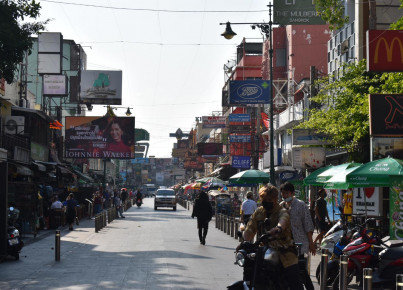The IPO market is extraordinarily vital around the world, and ASEAN is no exception. The Thai stock exchange is attracting the most capital and it is not going to stop.
While the real global economy has yet to fully recover from the COVID crisis, financial markets are experiencing a period of euphoric expansion. In particular, the IPO market is on fire and investors of all types and sizes have recently become more willing to buy the shares of companies that decide to go public. This may also have been favoured by COVID: central banks have injected a huge amount of liquidity into the market to stimulate economic recovery and the 'new normal' has encouraged the birth and growth of innovative companies, hungry for capital to finance their expansion. The ASEAN stock exchanges are also following a positive trend in terms of the number of IPOs and volume of investments attracted. The Stock Exchange of Thailand (SET) is the fastest-growing stock market in the region and looks set to accelerate even further.
First of all, the IPO is the process by which a private company goes public: by offering its shares to the public on a stock market, the company raises capital to support its growth and its private investors can make huge profits. The company can also seek capital through private equity, remaining private and without having to deal with the compliance (and risks) associated with the IPO, or simply postpone it. In recent years, emerging companies have tended to prefer private equity to the public one. When a company decides to go ahead with the IPO, it has to carefully prepare it. Not only all the requirements set by the stock exchange where the offering will take place and by the relevant regulator must be met, but the company should also seize the moment, enter the market at a favourable time, when it is easier to attract the attention of investors and stand out from other IPOs. For these reasons, companies wishing to go public meticulously prepare their IPOs with the help of investment banks. The whole process also involves a twofold choice. The choice of the company, which has to identify the most favourable stock market on which to bid and list its shares, and the choice of the investors, who have to decide on which stock exchange to focus their attention. The governance of the various stock exchanges can therefore seek to encourage companies to list on their exchange and provide the infrastructure to facilitate investors.
The growth of SET should be seen in this light. The Thai stock exchange is the second largest in ASEAN by capitalisation, after Singapore, but it is also the one that recorded the highest average daily turnover last May and attracted the most capital through IPOs in 2020. In an interview with Nikkei Asia in early July, SET chairman Pakorn Peetathawatchai outlined his strategy and goals for the years ahead. The Thai bourse has made listing requirements more accessible in certain sectors, so as to encourage particularly attractive companies, including foreign ones, and SMEs to go public. It has also worked with the Bangkok government to put together a substantial tax incentive package. In this way, SET intends to attract between 30 and 50 IPOs and almost 8 billion dollars each year, competing with Singapore to be the main ASEAN financial market. Looking at the early 2021 results, SET's ambitions seem within reach.
The Thai stock exchange seems to be so attractive because of the variety of players on it. The SET listing includes companies from almost every sector of the economy; companies that attract a balanced mix of investors. Almost 50% of the investors are from Thailand and retail. SET intends to facilitate the transactions of this group by using fintech tools: by the end of 2021, it will launch an online platform for the exchange of assets through digital tokens. This initiative should be seen in the overarching process of "democratisation" of the global investment market, made possible by new fintech platforms. Other stock exchanges in the region, such as those of Singapore and Indonesia, have adopted a different strategy, following a model that has been successful in the US: favouring SPACs (special purpose acquisition companies), companies that attract the funds of several investors, usually through the sponsorship of a well-known and influential entrepreneur, to merge with one (or more) companies at the time of the IPO. SPACs require special conditions to be successful but can allow companies to go public more quickly. SET is cautious about this practice, as are European stock exchanges. This caution should be applied to the IPO market as a whole, according to many observers: the huge success of IPOs in recent years may not last and the great results of certain listings take turns with surprising and unexpected thuds (such as Deliveroo's IPO on the London Stock Exchange). Investors are becoming much more cautious and selective in their choices, and this may slow down, but also stabilise, the race of companies towards listing.
Other ASEAN financial markets are outperforming themselves with their IPOs too, and are trying in various ways to make themselves even more attractive. Singapore is proving particularly inviting for the listing of foreign companies and even tech start-ups and has managed to bring home some major unicorns of the sector. The Indonesian stock exchange has seen an even higher number of IPOs than the Thai one, albeit with a lower value of capital attracted, reaping the benefits of Omnibus Law and the privatisation of some former state-owned enterprises. Vietnam, too, is catching up, thanks to greater coordination between the Hanoi and Ho Chi Minh City stock exchanges and the momentum of its economy, which is among the least affected by COVID in the region. The COVID is perhaps the main shadow cast on the future growth of ASEAN financial markets: the health crisis does not seem under control yet in some countries and certain sectors have not fully recovered - first, tourism, a fundamental sector for Thailand.






